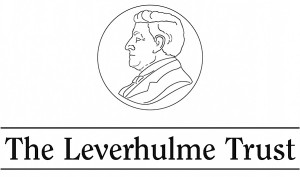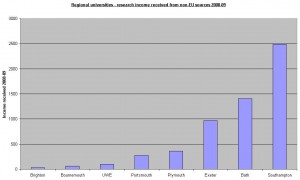 The ESRC’s Future Research Leaders call is currently open with a closing date of 15 September 2011.
The ESRC’s Future Research Leaders call is currently open with a closing date of 15 September 2011.
Universities are expected to consider applications very carefully prior to submitting them to the ESRC through this call, and all applications need to be supported with a letter from the PVC (Research, Enterprise and Internationalisation).
With this in mind BU has established a process for submissions to this call. All proposals must be submitted to a special version of our internal peer review scheme (the RPRS) first and must be signed off by Matthew Bennett as PVC (Research, Enterprise and Internationalisation) prior to submission.
For applicants interested in the scheme, the key internal dates are as follows:
| 22 Aug | Proposals to be submitted to the RPRS and sent for review. |
| 29 Aug | Proposal feedback to be returned to applicants. |
| 29 Aug – 5 Sep | Applicants to finalise proposals based on reviewer feedback. |
| 5 Sep | Final proposals to be sent to Matthew Bennett (via CRE Operations). |
| 5 Sep – 15 Sep | Matthew Bennett to review and approve final proposals (and write the PVC letter of support). Once reviewed, CRE Operations will let applicants know when to submit via Je-S. |
| 15 Sep | ESRC submission deadline. |
For further information on the RPRS please see the RPRS website: http://erss.bournemouth.ac.uk/researchsupport/bids/writing/rprs.html
If you are considering applying to the scheme but have not yet confirmed this with the CRE Operations team please could you do so as soon as possible.

 The Leverhulme Trust has funding available for research programme grants. This funding is for projects of up to five years duration and overarching projects should address a central theme of significance through the undertaking of a series of distinctive sub-projects. The 2012 competition themes are:
The Leverhulme Trust has funding available for research programme grants. This funding is for projects of up to five years duration and overarching projects should address a central theme of significance through the undertaking of a series of distinctive sub-projects. The 2012 competition themes are:





 “European Union ministers meeting in Luxembourg have signalled support for draft European Commission plans for an energy efficiency law impacting directly on utilities”
“European Union ministers meeting in Luxembourg have signalled support for draft European Commission plans for an energy efficiency law impacting directly on utilities” 

















 REF Code of Practice consultation is open!
REF Code of Practice consultation is open! BU Leads AI-Driven Work Package in EU Horizon SUSHEAS Project
BU Leads AI-Driven Work Package in EU Horizon SUSHEAS Project Evidence Synthesis Centre open at Kathmandu University
Evidence Synthesis Centre open at Kathmandu University Expand Your Impact: Collaboration and Networking Workshops for Researchers
Expand Your Impact: Collaboration and Networking Workshops for Researchers ECR Funding Open Call: Research Culture & Community Grant – Apply now
ECR Funding Open Call: Research Culture & Community Grant – Apply now ECR Funding Open Call: Research Culture & Community Grant – Application Deadline Friday 12 December
ECR Funding Open Call: Research Culture & Community Grant – Application Deadline Friday 12 December MSCA Postdoctoral Fellowships 2025 Call
MSCA Postdoctoral Fellowships 2025 Call ERC Advanced Grant 2025 Webinar
ERC Advanced Grant 2025 Webinar Update on UKRO services
Update on UKRO services European research project exploring use of ‘virtual twins’ to better manage metabolic associated fatty liver disease
European research project exploring use of ‘virtual twins’ to better manage metabolic associated fatty liver disease